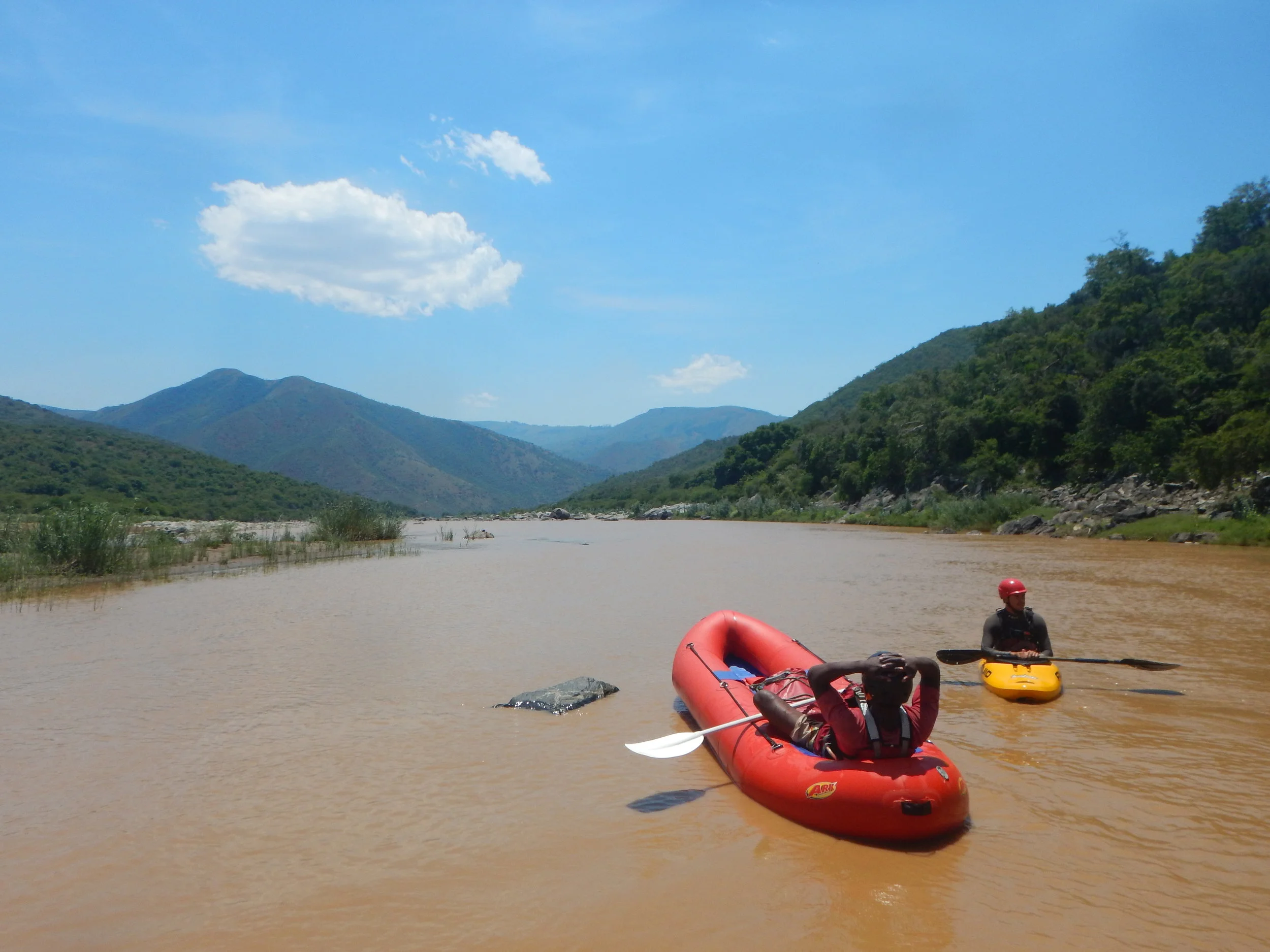Let’s face it: the music was atrocious. The collection of compact discs piled atop the cheap stereo behind the bar could only have been selected with the intention of debasing most musical sensibilities. Titles such as “Kevin Savage’s Music Power Volume 3,” “The Best Party Album in the World…Ever! Volume 2,” and “Bump 2 Various Artists” were the soundtrack for selling drinks to South Africans and foreign tourists who had just made it down the chaotic rapids of the Tugela River and wanted to celebrate the occasion. In that respect the music served its purpose. But now the bar and its clientele are gone.
Those were the golden years of the late 1990s at the Mfongosi Camp on the grassy banks of the Tugela in KwaZulu Natal: huge rapids, huge excitement, and huge parties. I worked there for a season, a full-time guide paddling rafts, leading canyoneering adventures, and serving drinks. Curious to see what had become of the river, the camp, and the nearby village of Mfongosi, I returned in November of 2018 with a small group of guides. This expedition was also an opportunity to do research for the book I'm writing about my time on the river: The Valley of 1,000 Falls.
Gustav Greffrath, Hugh du Preez, and Godfrey Tshumah ponder the water level of the Tugela River, looking down at Jameson's Drift.
At first we couldn’t find the camp. The track leading to the river from the main road had been rerouted, but we eventually found the sole remaining structure: the kitchen. Once an extensive compound had buzzed with activity. Clustered around a central clearing seven or eight structures served a community whose population rose and fell like the river level. The majestic, open-air boma overlooking the water with its bar at one end – gone. The managers’ stately colonial-era house – demolished. The clients’ quarters, the guides’ shack, the showers, the bathrooms, the workshop, the generator hut – all that remained were the concrete foundations. After the business packed up and it became clear that the camp was abandoned, enterprising locals methodically dismantled the entire place, carrying off the building materials for more productive (or profitable) uses elsewhere. Except for the kitchen.
The camp's surviving kitchen. I slept on this roof many nights during the 1998-1999 rafting season.
The remains of the boma foundation and the bar crumble as nature reclaims them.
On my recent visit I saw that the village of Mfongosi still bore the remnants of its neglected history. Yet there were signs of hope. The head induna of the village, Nicholas Mfana Ntuli, gave me a summary of the improvements and investments gradually reaching this stretch of the Tugela valley. Still, with the exception of the ubiquitous cellphone, the pace of life was largely unchanged from the late 1990s. The green hills rising from the dusty valley look down on a quiet community. This unknown corner of Africa will forever have a special meaning for me as a hub of adventure and of welcoming friends.
The head induna and his family were gracious hosts.
Some buildings were in disrepair...
...but most homes were new.
The river was exactly as I remembered it.
Quinton van Deventer takes the leap.

